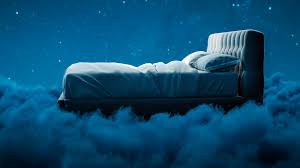
Expert Advises Against Heavy Meals and Caffeine Before Bed
If you find yourself craving a snack or a drink before bedtime, it's best to avoid heavy meals and caffeine, according to a nutrition expert.
Roberta Anding, a registered dietitian and assistant professor in the Joseph Barnhart Department of Orthopedic Surgery at Baylor College of Medicine in Houston, emphasizes the importance of timing and content of your evening consumption. "From a sleep standpoint, you shouldn't eat a big meal at 8 p.m. if you plan to go to bed at 9 p.m. If you are sensitive to caffeine, I would say to stop drinking it around noon," Anding advised.
In a Baylor news release, Anding explained that caffeine intake close to bedtime can significantly impact sleep quality. "Drinking caffeine before bed will impact your sleep. The average person takes about 10 to 20 minutes to fall asleep. If you have caffeine in your system or are sensitive to it, this amount of time can double."
She also cautioned against hidden sources of caffeine: "Caffeine is not only found in coffee, tea, and some soft drinks but can also be added to the pre-workout drink you take before going to the gym."
Similar precautions apply to consuming heavy meals late at night. Anding explained that eating a big meal before bed can affect blood flow and disrupt sleep/wake cycles. "Having a lot of food in your stomach before bed can redirect blood flow to your gut to digest the food, meaning there is less blood flow going to your brain. You need that blood flow to your brain to make sure you go into the different sleep stages."
However, she acknowledged that those who work night shifts may have different eating and drinking schedules. For those who need a pre-sleep snack, Anding suggests choosing light, easily digestible options. "A bowl of berries, Greek yogurt, or even a sliced apple with some peanut butter. It needs to be something high in protein or high in fat that is going to stay in your stomach longer. Quality also matters. Many of the foods people eat before bedtime are traditional snack foods such as chips or ice cream."
When it comes to beverages, Anding recommends milk or sparkling water without caffeine as good nighttime options. "A lot of the reasons people drink coffee or tea are because they relish the flavor. If coffee or tea is something a person just needs to have before bed, think about switching to a decaffeinated version, which would be a better option. Although decaffeinated isn't always 100 percent caffeine-free, there is significantly less caffeine," Anding concluded.